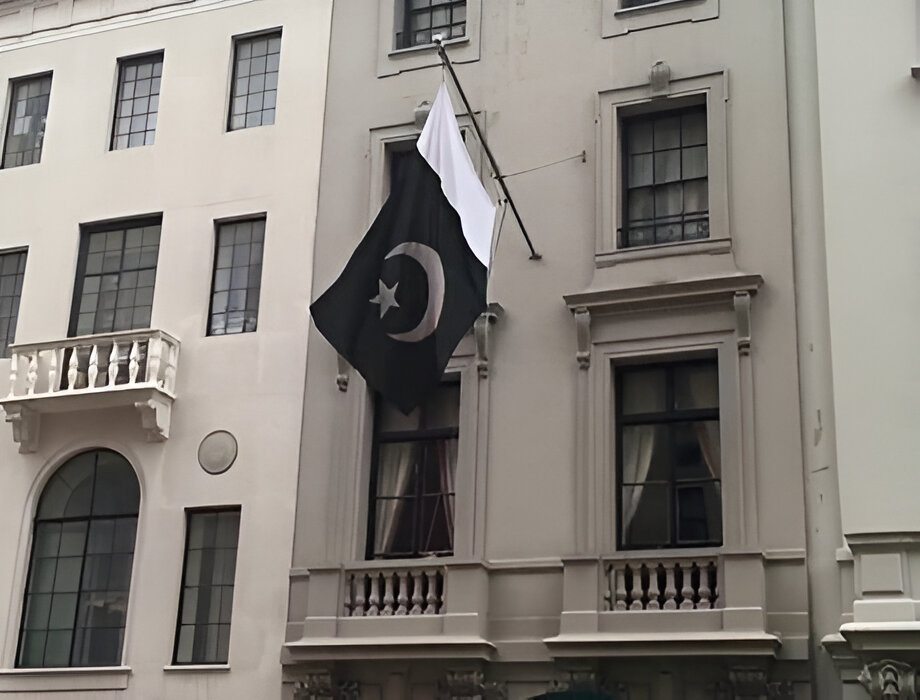ISLAMABAD, AUGUST 15: The 77th Independence Day of Pakistan was observed at the Pakistan House in New York on Wednesday with customary zeal and excitement. Ambassador Munir Akram raised the national flag and gave heartfelt thanks to Mohammed Ali Jinnah, the country’s founding father, for his visionary leadership.
The Holy Quran was recited at the start of the understated yet magnificent event, which was jointly arranged by the Pakistani Consulate General in New York and the Permanent Mission to the UN.
The audience, which also included Deputy Permanent Representative Usman Jadoon, officers, and employees of the Pakistan Mission and the Consulate, was addressed by Ambassador Akram, Pakistan’s Permanent Representative to the United Nations, and Consul General Aamer Ahmad Atozai.
Speaking on the occasion, Ambassador Akram stated that Pakistan was founded on this day in 1947 with tremendous hope as a homeland for Muslims in the subcontinent, fulfilling a goal that many commentators at the time believed was unattainable.
He praised the sacrifices made by Muslims and the excellent leadership of the Quaid-i-Azam, saying that “we would have continued to be slaves” in the absence of them. He claimed that the current state of Indian Muslims, who bear the brunt of Hindutva ideology, confirms the Quaid’s political acumen.
Pakistan was founded on the principle of self-determination, Ambassador Akram said, adding that the whole idea of independence would remain incomplete without the people of Kashmir realizing their inalienable right to self-determination. The word ‘K’ in Pakistan’s name represents Jammu and Kashmir, he pointed out.
In order to move Pakistan ahead in accordance with the goals of the people and the vision of the founding fathers, the Pakistani ambassador elaborated on a four-pronged structure.
According to him, Quaid-i-Azam’s maxim of unity, faith, and discipline was not just a catchphrase but also a necessity for exploring the nation’s socioeconomic potential. It was imperative that the nation’s economy recover, and the government enacted measures to do just that by putting the economy back on track toward stability.
Ambassador Akram highlighted the imperative of strengthening and modernizing the armed forces to effectively address the emerging security challenges including that of terrorism. “We are located in a region that is surrounded by a unique set of challenges, and we need to focus on strengthening our military capabilities.”
He also expressed his deep appreciation to the generations of Pakistani diplomats who went beyond their call of duty to defend and protect the country’s vital interests. In this context, he referred to the comment of a former Indian Foreign Minister who said that had it not been for Pakistani diplomats, the Kashmir dispute could not have been kept alive internationally.
In his remarks, Consul General Atozai, reflected on the significance of the day and highlighted the critical role of the Pakistani diaspora in projecting the country’s image and interests abroad. He also paid tribute to the resilience and contributions of the Pakistani community in New York.
“As we stand here today, thousands of miles away from our homeland, our hearts remain deeply connected to Pakistan,” Atozai said.
“We must continue to work with dedication and commitment to protect and promote Pakistan’s interests on the international stage. Whether through diplomatic engagement, community outreach, or the provision of consular services, our actions reflect the spirit and strength of Pakistan,” the consul general added.
Earlier, messages of President Asif Ali Zardari and Prime Minister Muhammad Shehbaz Sharif were read out on the occasion. In their messages, the Pakistani leaders reaffirmed their support for Kashmiris and Palestinians in their legitimate and just struggle for the right to self-determination.









